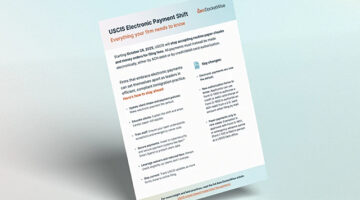Ed. note: This post is by Will Meyerhofer, a former Sullivan & Cromwell attorney turned psychotherapist. He holds degrees from Harvard, NYU Law, and The Hunter College School of Social Work, and he blogs at The People’s Therapist. His new book, Bad Therapist: A Romance, is available on Amazon, as are his previous books, Way Worse Than Being A Dentist and Life is a Brief Opportunity for Joy (affiliate links).
Here’s what you never hear anyone say at a Biglaw firm — followed by a discussion of why you never hear anyone say it.
Here we go…

The Trump Gold Card: A New $1 Million Pathway To A U.S. Green Card
A new proposal would let wealthy foreign nationals secure an opportunity for a U.S. green card with a $1 million 'gift' to the government, sparking legal and ethical debate.
Let’s work on this together. It’ll be more fun.
People write me all the time, complaining I’m too down on Biglaw. Nothing new there, but one guy, recently, expanded on the topic, adding that he works at a firm where everyone, so far as he knows, is happy — enjoying a rewarding career in a supportive, non-exploitative environment.
Perhaps you can see this coming: It turns out this guy owns the firm — and specializes in oral arguments before federal appellate courts. Prior to becoming managing partner, he attended top Ivy League schools.
By way of a reply, I opined: “Your experience might be considered atypical.”

USCIS shift to electronic payments: What immigration firms need to know
As of October 2025, U.S. Citizenship and Immigration Services requires electronic payments for filing fees. Learn key updates, exemptions, and how firms can prepare.
In reality, his experience should be considered ridiculously atypical. Redonkulously atypical. Yet this presumably brilliant legal mind couldn’t manage to grasp that reality from where he was standing — at the top of the heap.
This man claims, without irony, that every lawyer at his firm is happy. But, that little voice in the back of your head begins to counter, before you’re even aware of having the thought: it’s your firm.
They work for you. Of course they act happy, just as the maid cleaning your hotel room — the one without a green card, with a family to feed, smiles and acts delighted to see you when you pop in to grab your extra iPad mini and she’s on her knees scrubbing the shower.
Presumably, someone else, some possibly unhappy little person at this guy’s law firm, is doing the work he would rather not think about — the work that has to be done. Maybe it’s a junior he’s never met. And I’d bet good money that other guy’s doing it all by himself, probably late at night or on a weekend.
I was naïve when I started at Sullivan & Cromwell. I’d been told to expect late nights and weekends. Somehow or other, though, I harbored the daft notion it would be okay because we’d be in it together. There’d be an esprit de corps, a collegial sense of loyalty to one another, and to the firm. We’d divvy up the assignments based on seniority and expertise, then plug away as a team — and maybe share a pizza and a few laughs in a conference room during breaks.
Instead, I found out what it felt like to have work dumped on me, without apology or explanation — work I had no idea how to do and barely understand (let alone cared about). I learned what it felt like to endure weekend after weekend and night after night sitting utterly alone, alternately weepy and panicky, in an empty office tower, aching to return home, crawl into bed, and go to sleep, but knowing I couldn’t because that would get me fired, and I had loans, and no one else gave a damn about me or my misery because I didn’t matter one iota to their bottom line, which was money.
Here, I’ll show you how to do this.